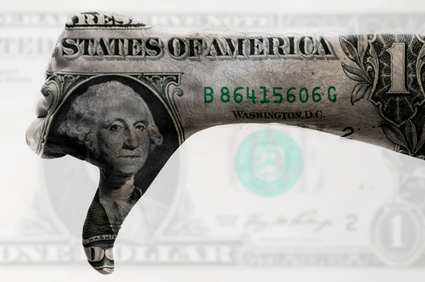 The United States of America holds its election for president every four years. During this time, candidates spend their hours promoting why the citizens of this country should elect him or her to run the entire country. This year’s presidential campaign involves two of the most highly respected names in politics. The Obama vs. Romney presidential campaigns clearly give the citizens of the United States of America something to think about.
The United States of America holds its election for president every four years. During this time, candidates spend their hours promoting why the citizens of this country should elect him or her to run the entire country. This year’s presidential campaign involves two of the most highly respected names in politics. The Obama vs. Romney presidential campaigns clearly give the citizens of the United States of America something to think about.
The Obama vs. Romney Debate: Individual and Corporate Tax Systems
In every presidential election, candidates are required to go head to head in a debate where both presidential candidates, namely Barack Obama and Mitt Romney, discuss their points of view on the country’s important matters including corporate tax holdings, individual taxes and many more. The point for discussion in the Obama vs. Romney debate is all about the country’s taxes including corporation taxes, benefits, advantages and disadvantages as well as their political stand on how to go about such matters should either one be seated as the nation’s leader.
A Rundown on the Obama vs. Romney Presidential Race
Before going in to the details of each candidate’s point of view, here are some things that you should know about current US president Barack Obama and presidential candidate Mitt Romney, as well as their presidential campaigns. This will help you better understand the different views between the Obama tax system approach and the Romney tax system approach.
• Barack Hussein Obama
He is currently seated as the United States of America’s president and commander in chief. Formerly the senator representing the state of Illinois, President Obama is the 44th US president and is the first African- American to be elected as the nation’s leader. Having been seated in the peak of the country’s economic crisis, President Obama’s approach to restore the glory of the US economy through various healthcare systems and corporation tax system revisions have gained a lot of steam from both the Obama administration supporters and those who oppose to it. His Obamacare is one of the most talked-about laws of all time.
• Willard Mitt Romney
Mitt Romney is a businessman and an investor who founded the Bain Capital investment firm. His first attempt in politics was when he ran for senate as a representative for the state of Massachusetts in 1994. This, however did not go as planned but Mitt Romney remained dedicated to be seated for public service and was elected in 2003 as the governor of Massachusetts.
His successful governance of the said state opened up the doors for a nomination as the Republican representative for the presidential campaign in the year 2008, where he lost to John McCain. However, the up and coming presidential election has once again provided Mitt Romney the chance to present himself as the new Republican presidential candidate who will run against the current US president, Barack Obama.
The Trend in US Corporate Tax Systems
Over the past several years, the US economy has taken a massive dip which affected the nation’s market and industry. The global crisis added more burden to the country along with its ongoing recession. Massive job retrenchments have resulted to a lot of unemployed citizens who are unable to pay for their house and car mortgages and struggle when filing their taxes with Turbo Tax Online.
With the current administration blamed for low wages for employees and the increasing individual and corporate tax requirements, various businesses and corporations are on their knees while performing massive layoffs just to stay afloat and to survive the duration of the country’s economic crisis.
Thinking about which areas of the US government is responsible for such economic turmoil, the presidential debate featuring Obama vs. Romney centers on the topic of individual and corporate tax systems, policies and programs for the up and coming administration. Taking into consideration both sides and views, here is the general discussion of the Obama tax system approach and the Romney tax system approach.
The Obama Tax Approach: Allocating Budgets and Taxes
 President Barack Obama’s approach to fixing the nation’s economic crisis has spawned a lot of debates and discussions, even before the presidential campaign for the following year’s election came about. A lot of financial experts both local and foreign have reviewed the Obama tax approach and have seen several loopholes that may cause more damage to the already crippled tax system of the nation.
President Barack Obama’s approach to fixing the nation’s economic crisis has spawned a lot of debates and discussions, even before the presidential campaign for the following year’s election came about. A lot of financial experts both local and foreign have reviewed the Obama tax approach and have seen several loopholes that may cause more damage to the already crippled tax system of the nation.
The president’s approach regarding corporation tax systems involves cutting several budgets for spending and increasing the tax requirements. He refers to this as the balanced approach to corporate tax problems, wherein businesses are required to pay larger sums and individuals with lower tax rates. This approach is done in order to reallocate the tax collected for a fairer way of responsible tax payment.
This may sound appealing at the moment, but looking into several years from now, a lot of businesses and corporations may not be able to sustain the increasing tax rates. Thus, these companies will be forced to reduce their company spending including laying off a lot of their employees just so they can cut back on their corporate tax requirements.
Another topic which has been reviewed over and over by critics and financial experts is the Obamacare health care system posing a 500 billion dollar tax increase placed on businesses and corporations. With the current US president’s attempt to solve the country’s crisis, increasing the government tax revenue from high corporate tax rates will only become deadweight, dragging down the entire tax system and the citizens of the country.
The Mitt Romney Tax Approach: Investment and Savings
Being a well-seasoned investor, Mitt Romney centers his approach on the crisis and downfall of the country’s economy. The Romney tax approach is better and more focused on providing the working citizens of the country a substantial resource of funds while maintaining a reasonable individual and corporate tax rate.
Instead of cutting various budget spending and increasing corporate tax rates, the Romney tax system involves a well-organized and uncomplicated way of collecting unbiased taxes; so that more people will become compliant to paying the tax due properly and on time. Mitt Romney plans to face corporate tax issues in a manner where business and company owners have a benefit from paying the amount of tax that is right to them. Such benefit would be to place the tax rates lower for those who have various savings and investments on banks and establishments.
This approach provides financial security not only for those with investments and businesses, but also for those US citizens working day in and day out for their hard earned salaries. With an assurance that the people will enjoy the privileges of paying their taxes responsibly, government funding need not slash their budgets for various developments and projects. This alone presents a lot of quantifiable benefits that Americans will surely enjoy.
Weighing the Obama vs. Romney Tax System Approach
Comparing which mode of action to provide better services to the people of America is very crucial for citizens to study and review before placing their bets on their favorite candidate. Although President Barack Obama’s approach to individual and corporate tax systems promises an ideal way of the country’s tax proceedings, it may be too risky especially now that the US government is currently dealing with the nation’s economic turmoil and recession.
The great thing about Mitt Romney’s tax system approach is that it focuses on corporate tax, investment and savings. This is beneficial for both the government and the people of this country and is a win- win situation promoting a promising future for the economic rise of the country. With an investor’s point of view, presidential candidate Mitt Romney plans to manage both individual tax and corporate tax that is systematic, reasonable and realistic; rather than a huge promise with an ideal outcome that may be too much for the US government to handle at the moment.

